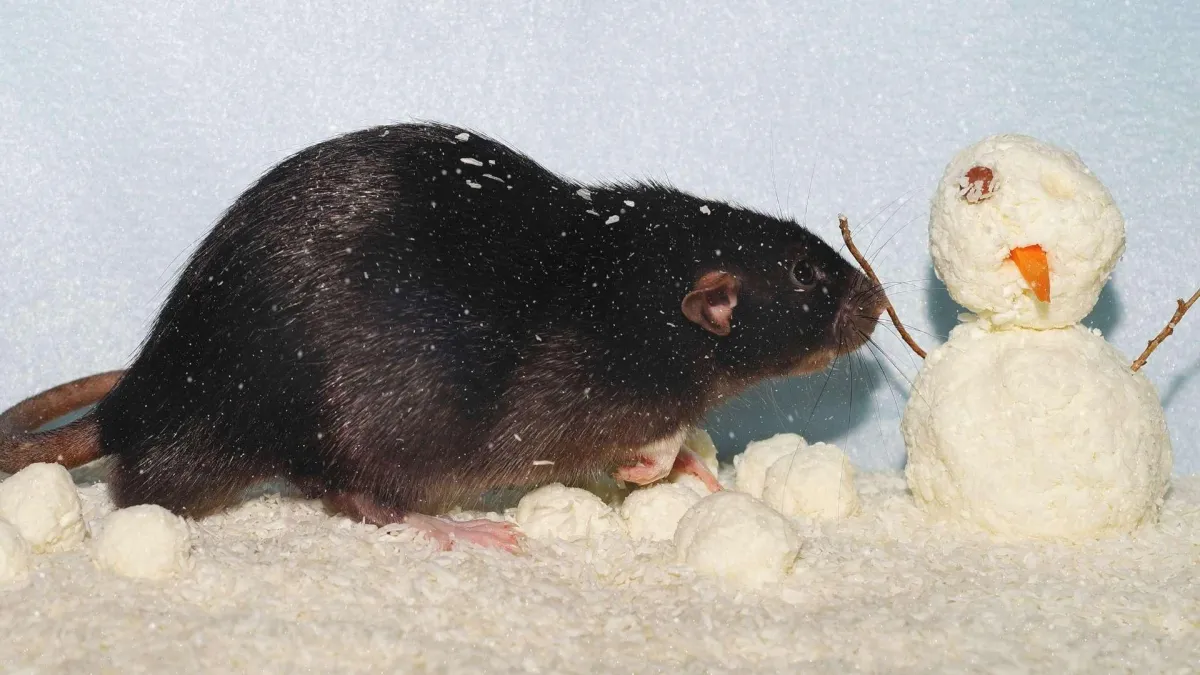Blog
Explore insightful and informative pest control blogs

Winter Pest Control: Keep Your Home Pest-Free This Season
Winter might seem like a season of peace when it comes to pests. After all, with the drop in temperature, you’d think they’d just disappear, right? As someone with over 25 years of experience as a pest control technician, I can tell you that couldn’t be further from the truth. In fact, winter is when many pests become even more determined to invade our homes.
When the weather gets colder, pests like rodents, spiders, and cockroaches are just like us—they’re looking for warmth and food. Your cozy home becomes their ideal retreat. Over the years, I’ve seen it all: families surprised by mice in their basements, cockroaches setting up camp in the kitchen, and even spiders popping up in the most unexpected corners.
Winter pest control is about more than just keeping your home free of creepy crawlies; it’s about protecting your family’s comfort and health. And trust me, a little prevention goes a long way in avoiding major headaches later.
Let’s dig into why winter pest control is such a challenge, which pests to watch out for, and what you can do to stay ahead of them this season.
The Challenges of Winter Pest Control

When the temperatures start to drop, our homes offer exactly what pests are looking for: warmth, shelter, and easy access to food. It’s not that pests “hibernate” during the winter; many of them simply relocate—and your home is often their top destination. Over the past 25+ years, I’ve seen how winter brings its own unique pest control challenges that homeowners often underestimate.
One of the biggest issues is that colder weather forces pests indoors. Rodents, for example, are experts at squeezing through tiny openings—some as small as a dime—to escape the chill outside. Once inside, they quickly make themselves at home, chewing through wires, insulation, and even food packaging.
Cockroaches, on the other hand, thrive in warm, humid spaces. During the winter, I often find them hiding in kitchens and basements where conditions are just right for their survival. And let’s not forget spiders—they might not seek out warmth, but their prey does, and that’s why you often find them lurking indoors during winter.
Another challenge is how quickly these pests can go unnoticed during the colder months. Since we’re less likely to spend time in certain areas of our homes—like attics, garages, or basements—pests can settle in and build their populations before you even realize they’re there.
Preventive measures are key during the winter months, but they’re also more challenging because of how persistent pests can be. Sealing every crack and crevice might sound simple, but it takes a trained eye to spot all the entry points. That’s why routine inspections, even in the winter, are so important.
Winter pest control isn’t just about reacting to infestations—it’s about staying one step ahead of them. Over the years, I’ve learned that proactive measures can save homeowners from costly damages and sleepless nights.
Common Winter Pests and Why They Appear

Winter may give us a break from mosquitoes and wasps, but it brings its own set of pest problems. The cold season forces many pests to seek refuge indoors, and understanding why they appear can help you stay ahead of infestations.
Rodents
Rodents, like mice and rats, are some of the most common winter intruders. Cold weather drives them indoors, where they search for warmth, food, and nesting spots. Small cracks in walls, gaps around pipes, and even open garage doors are all potential entry points. Once inside, they can chew through electrical wires, insulation, and wooden structures, creating significant damage.
Cockroaches
Cockroaches thrive in warm, humid environments, making kitchens and bathrooms their ideal winter hideouts. During the colder months, they enter homes in search of consistent temperatures and food scraps. Their presence can trigger allergies and asthma, making them not just a nuisance but a health risk.
Spiders
Spiders don’t seek warmth directly but follow their food sources—other insects—indoors. They’re often found in basements, attics, and undisturbed corners of rooms. While some spiders are harmless and even helpful by controlling other pests, their webs and sudden appearances can still be unsettling.
Ants
Ants are less active in winter but can still be a problem. Some species, like odorous house ants, move indoors to build nests near heat sources. They’re drawn to crumbs, sugary foods, and improperly stored pantry items.
Silverfish
These silvery, quick-moving pests prefer dark, damp spaces like bathrooms, basements, and storage areas. Winter humidity levels in certain parts of the home can attract them, and they’ll feed on paper, fabrics, and even glue from book bindings.
Occasional Invaders
Other pests, such as stink bugs, boxelder bugs, and cluster flies, may appear indoors during the winter. While they don’t typically cause structural damage or health concerns, their presence can still be annoying, especially when they gather in large numbers.
Preventive Measures for Winter Pest Control

Winter pests can be persistent, but a few preventive measures can make a big difference in keeping them out of your home. A little effort now can save you from costly damage and the hassle of an infestation later.
Seal Cracks and Crevices
Inspect your home’s exterior for any gaps or openings where pests might enter. Pay close attention to areas around windows, doors, pipes, and vents. Use caulk or weather stripping to seal these gaps, and consider installing door sweeps to block entry at ground level.
Regular Inspections
A thorough inspection of your home, particularly in less-frequented areas like attics, basements, and garages, is key to spotting pest activity early. Look for signs such as droppings, gnaw marks, or shredded materials that could indicate nesting.
Food Storage and Sanitation
Pests are opportunistic and will quickly take advantage of accessible food sources. Store all food in airtight containers, clean up crumbs and spills immediately, and make sure garbage is disposed of regularly. Don’t forget to keep pet food sealed and off the floor, as it’s another common attractant.
By taking these steps, you can significantly reduce the chances of pests making your home their winter refuge.
Professional Winter Pest Control
While preventive measures can go a long way, sometimes winter pests find a way in despite your best efforts. This is where professional pest control services make a big difference. A trained technician can identify hidden pest issues, seal potential entry points, and use effective treatments that are safe for your home and family.
Specialized Tools and Strategies
Professionals use tools and techniques tailored to winter pest challenges. For example:
Thermal imaging cameras to detect hidden rodent nests in walls.
Baiting systems and traps specifically designed for rodents and insects.
Eco-friendly sprays and treatments that target pests without harming the environment.
Year-Round Protection Plans
One of the biggest benefits of working with a pest control company is access to year-round maintenance plans. These plans include regular inspections, seasonal treatments, and proactive measures to prevent future infestations. Winter is just one part of the bigger picture—staying protected all year ensures that pests don’t have a chance to get comfortable.
Conclusion
Winter pest control is about more than just keeping pests out; it’s about protecting your home, your family, and your peace of mind. By taking preventive steps and working with a professional pest control service, you can enjoy a cozy, pest-free winter.
If you’re ready to tackle your winter pest control needs, contact us at Network Pest Control today. Let’s make sure your home stays warm and welcoming—for you, not the pests!
Frequently Asked Questions About Winter Pest Control
Is pest control worth it in the winter?
Yes, pest control is worth it in the winter. Many pests, like rodents and cockroaches, move indoors during colder months, seeking warmth and food. Professional pest control ensures your home stays protected and pest-free year-round.
Does winter get rid of bugs?
No, winter doesn’t get rid of bugs—it drives many of them indoors for warmth and shelter. While some pests become less active, others thrive inside homes, making winter pest control essential.
Do pest control companies spray in winter?
Yes, pest control companies spray in winter when needed. Treatments target indoor areas and entry points to prevent pests from thriving indoors, ensuring effective protection during colder months.
Craving a Superior Pest Control Solution?
COMPANY STORY
& EXPERIENCE
Craig Broadhead started his pest business in 2004 in California, called Pacific Pest Control. In 2021, he sold his business and moved his family to Arkansas to start fresh with a new vision of Network Pest Control. His goal it to make sure each customer has the best experience possible.


Network Pest Control
11205 Meadow Lark Rd. Rogers AR 72756
479.888.4249
